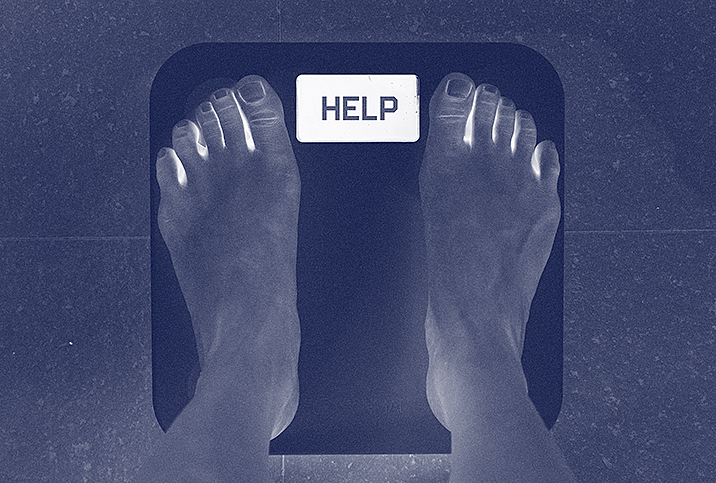Eating Disorders: Myths & Misconceptions

Eating disorders are a mental health condition that cause unhealthy eating habits due to an obsession with food or body image. Eating disorders take a toll on both mental and physical health and typically require help from medical and psychological professionals.
Approximately 20 million women and 10 million men in the United States have suffered from an eating disorder at some point in their life. Eating disorders are most often reported in young women, and approximately 13 percent of adolescents report having an eating disorder by the age of 20.
Those are facts. Unfortunately, too many misconceptions about eating disorders still exist. Here, we debunk three of the biggest ones and give you what you need to know.
Myth: All eating disorders are the same.
Reality: Different eating disorders have different behaviors and outcomes. People can develop an eating disorder based on what they're trying to control or the goal they're trying to reach. There are several different eating disorders, but the three most common ones are anorexia nervosa, bulimia nervosa and binge eating disorder.
People struggling with anorexia nervosa view themselves as overweight even if they're severely underweight. They restrict their calories, repeatedly weigh themselves and avoid eating certain foods.
Symptoms of anorexia nervosa include being underweight, eating a restricted diet, being afraid of gaining weight, and obsessing about being thin despite already being underweight, due to denial about weight status.
People with anorexia nervosa may also find it difficult to eat in public and may exhibit obsessive-compulsive symptoms, such as thoughts about food, hoarding food or recipes, and having a need to control their environment. They may force themselves to vomit or take laxatives after eating or exercise excessively to lose weight.
Over time, anorexia can lead to thin bones, infertility, hair loss, weakened muscles, low blood pressure, constipation, and brittle hair and nails. Ultimately, severe anorexia may lead to organ failure and death.
Individuals who struggle with bulimia nervosa have a fear of gaining weight even when they are a normal weight. They have episodes of losing control and eating abnormally large amounts of food in a short period of time. The person will usually eat until they feel painfully full and then compensate for their overeating by purging: vomiting, using laxatives, fasting or excessively exercising.
Symptoms of bulimia nervosa overlap somewhat with those of anorexia, especially in anorexia cases that involve purging. These symptoms include a sore throat; worn, sensitive or decaying teeth; acid reflux disorder; dehydration; and an electrolyte imbalance that can lead to a stroke or heart attack. People with bulimia nervosa may appear to be a healthy weight, but may also be overweight or mildly underweight.
Similar to bulimia nervosa, people with binge eating disorder lose control and eat an abnormally large amount of food in a short period of time. However, they don't follow their binge eating with measures like vomiting or taking laxatives to counteract their binge. Because of this, people with binge eating disorder are often overweight.
Individuals with binge eating disorder may resort to eating large amounts of food in private, eating until uncomfortably full, eating when they're not hungry, and feeling ashamed or disgusted about their eating habits.
Myth: Eating disorders are a choice.
Reality: Eating disorders are mental conditions that a person doesn't choose and can't control. They often happen alongside other mental conditions such as anxiety, depression, obsessive-compulsive disorder (OCD) and social phobias.
Several factors are involved in developing an eating disorder. Genetics, personality traits, brain structure and societal pressure to be thin are typically considered the main causes of eating disorders, but additional research is required.
Myth: I can't treat an eating disorder.
Reality: Recovering from an eating disorder is possible but can require both medical and psychological help.
People who struggle with eating disorders are at a higher risk of medical problems and suicide. Therefore, it's important to seek treatment for eating disorders as soon as possible, so you can prevent serious damage.
Anyone struggling with an eating disorder can choose from a variety of treatment plans that are often tailored to the individual's needs. Plans include individual or group therapy, medical care, nutritional counseling and medication.
If left untreated, eating disorders can cause irreversible damage to the body, so it's important to be aware of the signs that you or a loved one has developed an eating disorder. Patients may benefit from speaking with a counselor or a physician to get started on the road to recovery.
















